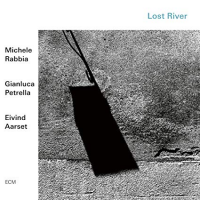Originally posted by Serial_Apologist
View Post
SA
I would have to disagree with you on this one.
Cassie's ensemble was formed in 2016, nearly fifty years after the revolution in jazz that you speak of. I don't seem what happened in the 1960's as a point of termination for jazz and maybe it seems more significant in the light of the fact that there is a far broader range of styles in jazz in 2019 than in 1965 -70 so that you will not witness Eureka moments like Armstrong, Ellington., Parker, Coltrane or Ornette in succession but a multitude of developments over a wide point in time. It is really a bit of a nonsense referring back to something that happened half a century ago in connection with something happening today even if I concur with the significance of the avant garde of that point.
The point well made by Cassie is that jazz has lost something in your opinion of the transition which saw "post-bop, non-Black, non-American jazz would-be's permission to express the music's universal potential previously locked within in." Any outside influence existed well before the avant garde anyway, whether it be Django Reinhart, Spike Hughes' "Celtic" explorations with his American orchestra, Stan Getz / Bossa Nova or the whole swathe of Cuban jazz which can be traced back to the likes of Mario Bauza in the 1930's. I do not buy your argument and I would throw back to you that the notion of "letting the lid flyoff" (as John Surman once explained) has had unexpected consequences which I feel have not been to the benefit of jazz / improvised music , etc. I think a lot of fusion and rock has had a detrimental effect on jazz although maybe not as much as the likes of Scandi-jazz, the kind of stuff put out by labels like ACT or some ECM artists where the music can sometimes be lightweight.
Like it or not (am I would consider myself to be firmly an advocate of the former) jazz is a essentially a black music and even if there have been white musicians who have enjoyed parallel and equally viable artistic lives since the 1920s, I strongly feel that the further jazz migrates from it's traditions or allows outside influences to dominate, the music does lose something. This is not saying that the music should become ossified as I think the possibilities for jazz are almost boundless - someone is always going to come up with new styles of playing and writing that would have been unimaginable 20 years beforehand. I think these changes are still happening in the music, whether it is by the likes of Steve Coleman, Tyshawn Sorey, Steve Lehman, J D Allen, Jason Roebke, etc. I feel you under-estimate the potential of jazz and that is the point I feel Cassie is also stating. For the sake of being "different", a lot of jazz is losing it's vitality and relevance. I see a lot of Scandi-jazz as the same kind of flash-in-the pan as Nu Jazz back in the late 1990s or Smooth Jazz in the 1980s.
Cassie's music does not sound like jazz made by Miles Davis in the 60's or 70's and nor does it represent a new manifestation of the young New Neos of the 1980s. As I said earlier, it sounds entirely of our time yet it is recognisably jazz. I think it is sometimes too easy to conflate free jazz / the avant garde with being innovative. In my opinion, there is nothing worse than crap avant garde music. It is the worst. The music she is creating is trying to reach out to a younger audience and by re-calibrating the music back towards it's more populist origins it is foolish to assume that the music is "less worthy" than it's more inaccessible cousins. For me, the music she produces still has that bite which is so necessary for jazz. It does have the ability to remain a not altogether comfortable listen yet it can reach out to a broader audience. Everything I have read about her or seen her discuss in interviews is so informed and I find myself thinking that she talks an awful lot of sense.
In some respects I agree with you about "difficult" styles of music, some of which I love. However, I do not see the proletariat clambering over the barricades to listen to Evan Parker. Most Working Class people will have tastes that are firmly centred around poor quality pop music. The wives of striking miners were, as far as I am aware, not re-known for their enthusiasm for Archie Shepp records in 1984 and it is hardly likely that Cecil Taylor was blasting out of any beat boxes in Orgreave at the same time. I would argue that Cassie's Paean for Grenfell is probably the kind of music that would resonate with those scandalously unfortunate communities.




Comment